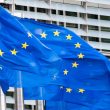Starbucks China has entered into a strategic technology partnership with Univers, a global leader in AI-powered energy solutions, to accelerate sustainability efforts across its operations and supply chain. The collaboration will leverage advanced artificial intelligence (AI) and Internet of Things (IoT) technologies to monitor, measure, and reduce Scope 3 emissions—those generated indirectly through suppliers and partners.
As part of the initiative, more than 7,500 Starbucks stores in China are now connected to a newly developed AI-IoT platform created jointly with Univers. The platform allows for real-time, remote monitoring of over eight types of in-store equipment—including HVAC systems, lighting, and water filtration—optimising energy use and improving both operational efficiency and the customer experience.
A key component of the partnership is the development of a Supply Chain Carbon Management Platform powered by Univers’ EnOSTM Ark Carbon Management System. This system enables Starbucks to track emissions from core suppliers and products, including milk, beverages, food, and packaging.
Milk, identified as the single largest contributor to Starbucks’ Scope 3 emissions, is receiving targeted attention. The two companies have co-developed a Sustainable Dairy Digital Management Tool, which provides carbon baseline tracking, facilitates decarbonisation planning, and supports pilot sustainability initiatives at the farm level.
Univers’ next-generation edge computing device, the One-Box, will also support Starbucks’ future business expansion by integrating computing and hardware management across various in-store applications, from point-of-sale systems to smart store control terminals.
“Through this partnership, Starbucks is embedding cutting-edge technology into its sustainability strategy, laying the groundwork for a more intelligent and low-carbon operation,” a Univers spokesperson said. The collaboration aims not only to support Starbucks’ carbon reduction targets but also to help its suppliers transition to greener practices while strengthening compliance with evolving climate regulations.
The alliance underscores a growing trend in the food and beverage industry, where digital tools and cross-sector partnerships are increasingly essential for achieving net-zero ambitions.














